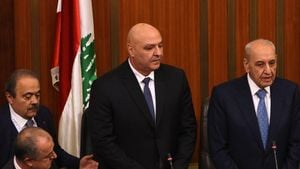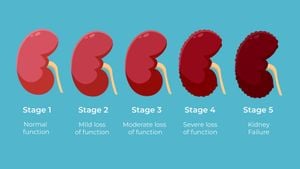Donald Trump, the former U.S. president, has stirred controversy with recent comments downplaying the necessity of Ukrainian President Volodymyr Zelenskyy's participation in peace negotiations concerning the conflict with Russia. Speaking during an interview with Fox News Radio, Trump asserted, "If I'm honest, I don’t think his presence at meetings is very important," referring to Zelenskyy's role over the past three years, during which he claims Zelenskyy has failed to end the conflict.
Trump's criticism reflects not only his personal views on Zelenskyy's effectiveness but also hints at larger shifts in U.S. foreign policy. He argued, "Zelenskyy has been at meetings for three years and hasn’t done anything to resolve the issue. Ukraine doesn’t have any cards to play." The former president previously suggested both Zelenskyy and President Joe Biden could have avoided the war by taking stronger actions against Russia, framing their diplomatic approaches as inadequate.
Such statements have raised eyebrows internationally, especially from Russian officials. According to reports from Bloomberg, Kremlin sources expressed surprise at the abrupt criticism, finding it difficult to grasp Trump's negotiation strategy and fearing potential pitfalls within the negotiations. Trump's remarks contradict the established diplomatic principle of including Ukraine directly in discussions impacting its future, often summarized by the axiom, "Nothing about Ukraine without Ukraine." Instead, Trump's perspective suggests reducing Ukraine's role and elevates U.S. and Russian interactions.
The former president's focus on Zelenskyy's political standing has added another layer to the discourse. He indicated Zelenskyy's low approval ratings among Ukrainians may undermine his position, stating, "Zelenskyy is acting like a dictator, and if they don’t act quickly, he won’t have a country left to lead." Trump's comments serve to galvanize the narrative implying Ukrainian leadership is out of sync with the needs of its citizens.
Meanwhile, these remarks come on the heels of renewed discussions between Russian and American diplomats. Following meetings held recently, the U.S. and Russia agreed on the necessity of having Ukrainian representatives present, even as Trump suggests otherwise. Dmitry Peskov, the Russian press secretary, indicated the importance of including Ukraine at some point during future talks.
Trump's recent statements do capture the attention of many as he attempts to re-establish relations with Russia, often framed as negotiations. His perspective pivots more toward direct talks with Russian officials, endorsed by recent meetings aimed at restoring diplomatic communications disrupted by the conflict.
The scale of criticism Trump's comments catalyze points to the broader geopolitical dynamics at play. Some analysts suggest his approach reveals his administration's latent preference to overlook Ukraine's agency, focusing instead on unconventional methods to deal with what he sees as stronger adversaries.
Despite the heated dialogue, the Biden administration has maintained firm lines of support for Ukraine. Secretary of State Antony Blinken's emphasis on U.S. commitment to Ukraine indicates the administration's position stands apart from Trump's rhetoric. The divergence showcases the contentious political climate surrounding foreign policy as Trump's views gain traction among segments of the Republican electorate.
Further complicitating matters, Trump's statements seem to align with certain narratives gaining ground within more isolationist branches of the American political sphere, portraying foreign aid and assistance to Ukraine as questions of national interest rather than expressions of moral duty.
This dialogue raises questions about the future direction of U.S.-Russia relations and Ukraine's role within them. Will Trump's perspective influence the negotiations or shift the balance of power? Or will continued pressure from other political factions advocate for keeping Ukraine at the center of its discussions?
While Trump's comments might resonate favorably with some, they spark dismay and criticism from other quarters, as many advocate upholding the priority of Ukrainian sovereignty and participation. It seems evident the situation will evolve significantly as each side recalibrates its strategies and seeks their respective goals.
The waters are murky, and as the negotiations proceed, the dynamics around Trump’s comments will undoubtedly play out on the global stage, positioning Ukraine precariously as key players manoeuvre for their advantageous outcomes.
Continuing developments around these engagements and their ramifications will surely captivate international audiences and shape diplomatic strategies globally.



